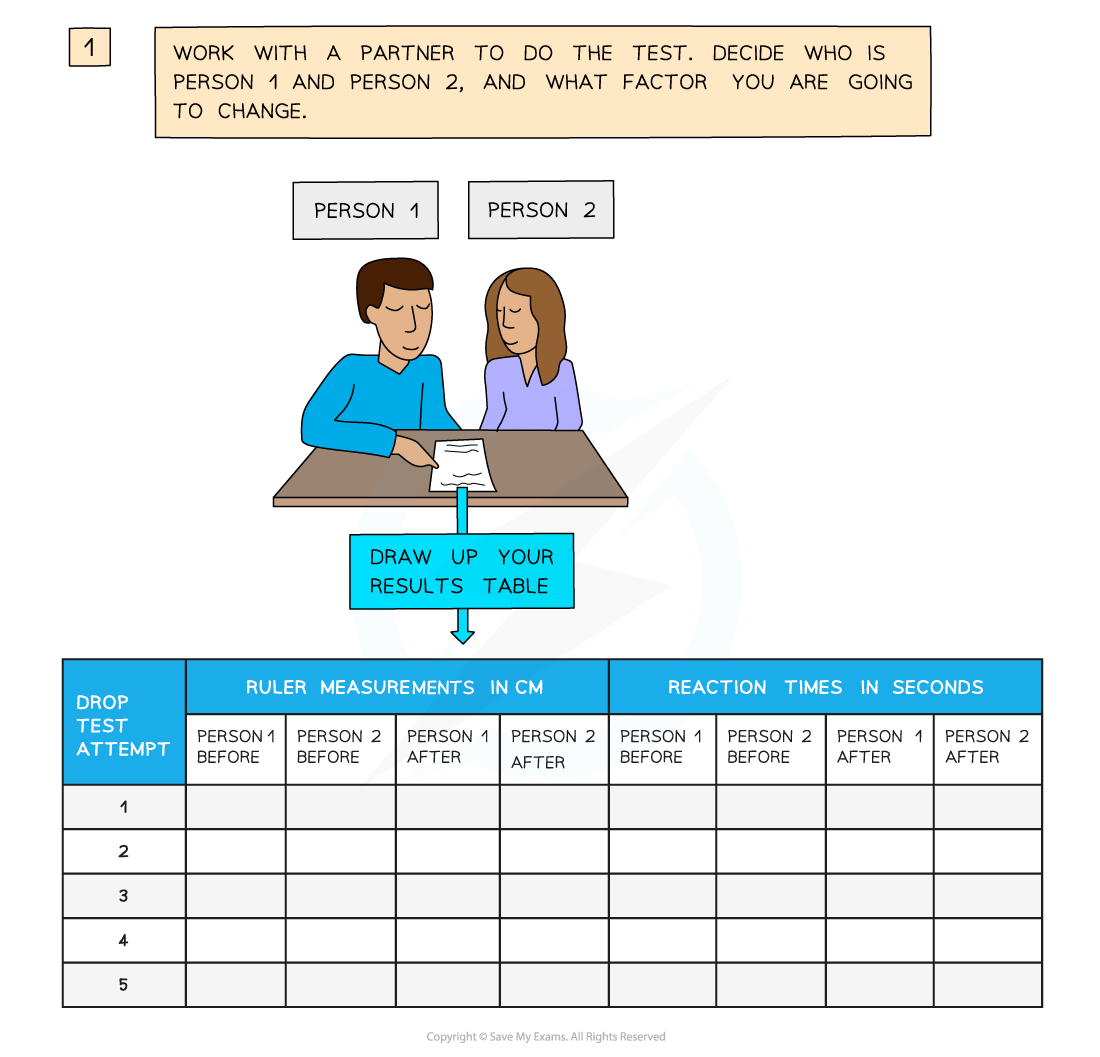Required Practical: Reaction Time (AQA GCSE Combined Science: Trilogy): Revision Note
Exam code: 8464
RP7: Reaction Time
Aim: to plan and carry out an investigation into the effect of a factor on human reaction time
You will:
Choose a factor that you wish to investigate that will have an effect on reaction time
Carry out a number of experiments to measure reaction time
Reaction time is the time taken to respond to a stimulus; reactions are usually very quick responses typically taking less than a second to occur
Reaction time can be affected by factors such as age, stress or use of drugs (such as caffeine)
You could investigate the effect of background noise or consumption of caffeine on how quickly a person catches a ruler
Reaction time can be measured in this way using the principle that the further down the length a ruler is caught, the slower an individual's reaction time
The experiment can be repeated several times to calculate a mean average distance caught and this can be equated to a reaction time
The process is then repeated after a condition is changed (the person drinks a can of caffeinated drink or has to repeat the experiment when loud background music is playing)
Remember to only change one factor (independent variable) in your investigation
There are many control variables that should be considered in this experiment such as:
The person catching the ruler using their dominant hand each time
Dropping the same ruler from the same height each time, with the ruler orientated in the same direction (0 cm facing down)
If the effect of caffeine is being investigated then none should have been consumed before the start of the experiment, or the room is silent for the first run if background noise is being altered
It is possible to carry out a reaction time investigation using a computer; this is obviously more precise as it removes human error from measurements
Reaction time can also be recorded in milliseconds which is more accurate than seconds



This experiment is prone to lots of errors and there are many factors that can affect the results. Repeat as many times as possible!
Interpreting Information about the Nervous System
In the exam, you must be able to extract and interpret data from graphs, charts and tables about the functioning of the nervous system
Worked example
For example, three students played a computer game which measured their reaction time to click when they saw a blue light flash on the screen
Their results were recorded in the table below:

Image of a table of results for a reaction time experiment
You could be asked to calculate the mean reaction time for each student, or be given the means and asked to identify if any had been calculated incorrectly if any anomalous results were included
There is an anomaly recorded for student C on their third attempt – 573 ms is much higher than the other results recorded so should not be used to calculate a mean
The lowest reaction time equates to the person with the fastest reaction time – in this example, student A has the fastest reaction time (255 ms) and student C the slowest (267 ms)
Examiner Tips and Tricks
You could be asked to express answers in standard form or as ratios in an exam for this type of question.

Unlock more, it's free!
Did this page help you?